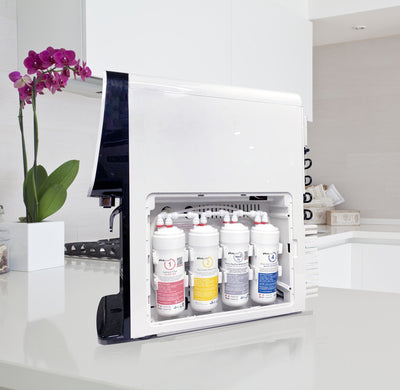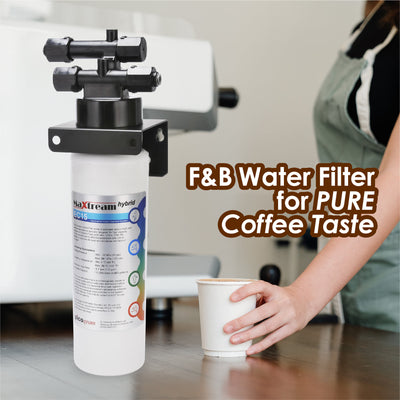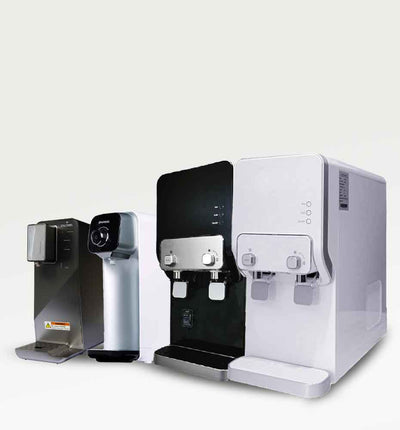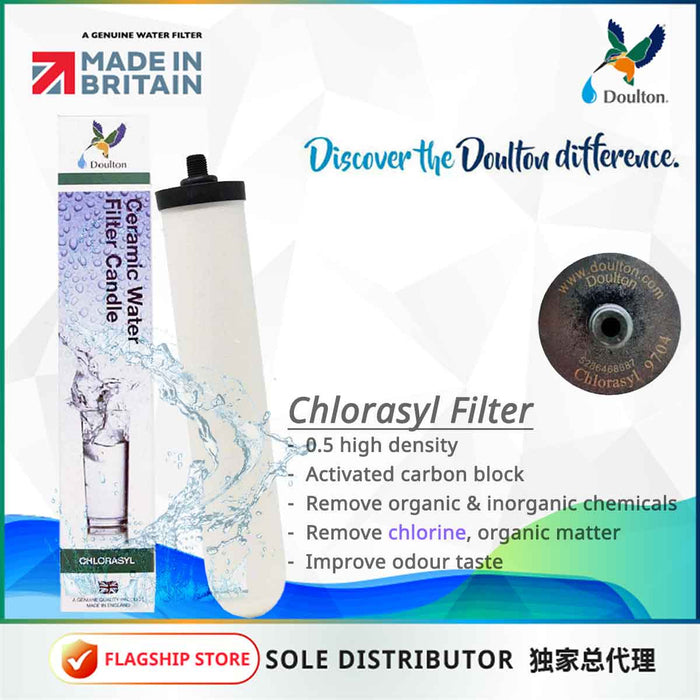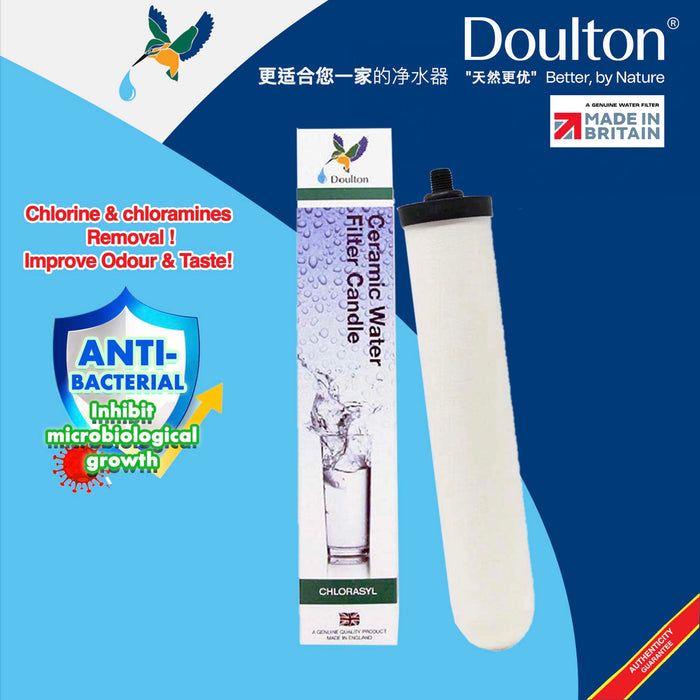
Doulton Chlorasyl 9704 Ceramic Water Filter Candle
Original price
RM249.00
-
Original price
RM249.00
Original price
RM249.00
RM249.00
-
RM249.00
Current price
RM249.00
What's in the Box?
- Doulton Chlorasyl 9704 Ceramic Water Filter Candle
Overview:
-
Model: Chlorasyl 9704 Ceramic Water Filter Candle
- An ideal choice for city water containing chloramines as a primary or secondary disinfectant. Three-stage ceramic filter candle innovatively designed to effectively remove or reduce chloramines, chlorine, bacteria, cysts, and suspended solids, all while retaining the beneficial minerals in your water.
- Particulate Rating: Absolute (>99.99%): 0.9 microns, Nominal (>99.9%: 0.5 – 0.8 microns.
- Capacity: 3800L
- Pathogenic Organisms: Bacteria Removal E. Coli / Cholera / Shigella / Typhoid / Klebsiella Terrigena >99.99%
- Cyst Reduction: (including Giardia and live Cryptosporidium): >99.99%
- Chlorine Reduction @ 2ppm: >97%
- Chloramine Reduction @ 3ppm, Tested to 650 US gallons: 95%
- Nominal Particulate Reduction: Class 1
- Turbidity Reduction: >98%
Filters performance datasheet >>
Why and What is Chloramine?
- More and more, municipalities have begun to use chloramine (often called monochloramine), which is a combination of ammonia and chloramine, as the primary disinfectant of its water supply.
- More than 1 in 5 Americans are exposed to this toxin on a daily basis. Consumers have demanded a product that is efficient at removing chloramine for these reasons:
- Like chlorine, it produces a strong chemical taste and odor in the water.
- Exposure can be through ingestion and inhalation and can cause long-term respiratory issues including lung damage, mucus membrane, and skin diseases, along with short-term respiratory sensitivity.
- Chloramine can produce even more toxic disinfectant by-products than chlorine, such as; iodoacids.
- Chloramine has proven to be less effective at killing bacteria. Immune-compromised individuals without a capable filter would still be recommended to boil their water to ensure sterilization.
- Chloramine is considerably more difficult to remove than chlorine.

